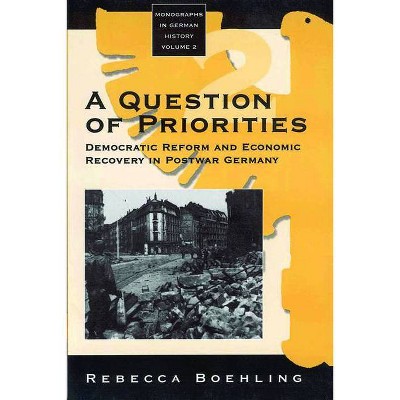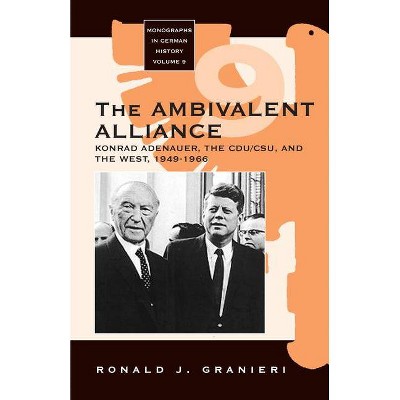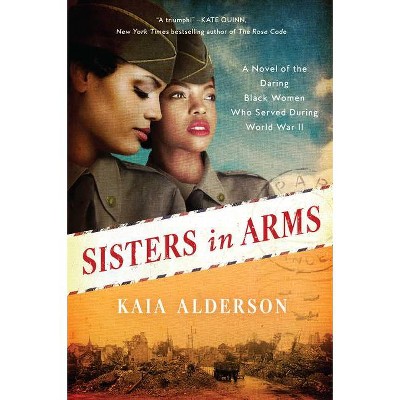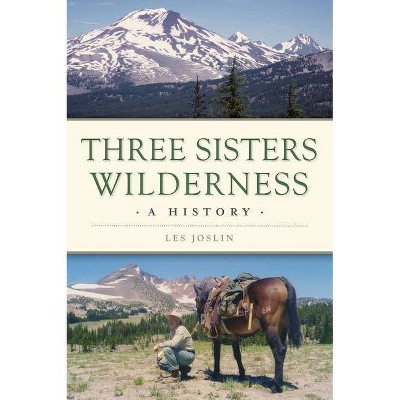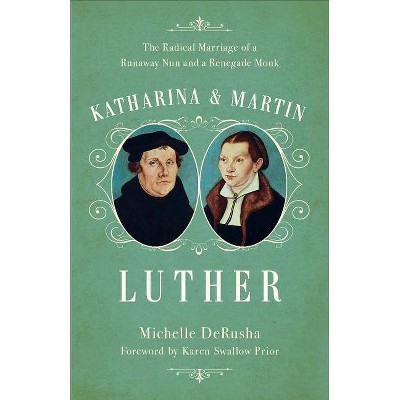Sisters in Arms - (Monographs in German History) by Katharina Karcher (Paperback)
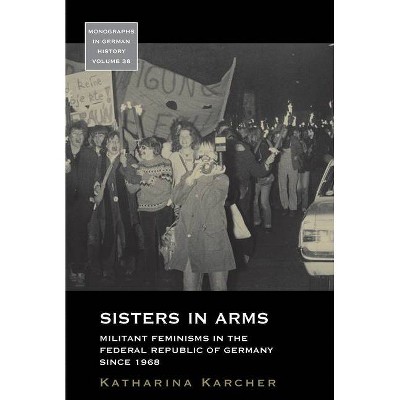
Similar Products
Products of same category from the store
AllProduct info
<p/><br></br><p><b> Book Synopsis </b></p></br></br><p>Few figures in modern German history are as central to the public memory of radical protest than Ulrike Meinhof, but she was only the most prominent of the countless German women--and militant male feminists--who supported and joined in revolutionary actions from the 1960s onward. <em>Sisters in Arms</em> gives a bracing account of how feminist ideas were enacted by West German leftist organizations from the infamous Red Army Faction to less well-known groups such as the Red Zora. It analyzes their confrontational and violent tactics in challenging the abortion ban, opposing violence against women, and campaigning for solidarity with Third World women workers. Though these groups often diverged ideologically and tactically, they all demonstrated the potency of militant feminism within postwar protest movements.</p><p/><br></br><p><b> Review Quotes </b></p></br></br><br><p> <em>"Karcher's study of militant feminism encourages scholars to re-think the history of feminism, and reflect on how changes to feminist politics and practice have shaped what is considered feminist, and the writing of feminism, more broadly."</em> <strong>- English Historical Review</strong></p> <p> <em>"Karcher shows that although a number of feminists were anxious to be equated with terrorists and therefore publicly denounced the use of violence, militancy did indeed play a significant role in the New Women's movement of the 1970s and 1980s. The material she has accessed to prove her point is impressive, and her historical overview is rich and concise."</em> <strong>- German Studies Review</strong></p> <p> <em>"Karcher's monograph offers an excellent overview over radical forms of action and groups within the west German women's movement. Not only did she uncover a lot of material, but she also carried out numerous interviews."</em> <strong>- querelles-net</strong></p> <p> "<em>A recurring issue throughout the book is the way in which violence and militancy have been written out of the history of feminism, in favour of gendered narratives of peaceful protest. Bringing these two elements together, Karcher's study of militant feminism encourages scholars to re-think the history of feminism, and reflect on how changes to feminist politics and practice have shaped what is considered feminist, and the writing of feminism, more broadly</em>." <strong>- The English Historical Review</strong></p> <p> <em>"Karcher offers a refreshing perspective on the history of the New Women's Movement in West Germany and its relationship to militancy in this long-overdue study. Any future scholarship on feminist activism in Germany will need to consider this provocative and revealing book."</em> <strong>- Patricia Melzer</strong>, Temple University</p><br><p/><br></br><p><b> About the Author </b></p></br></br><p> <strong>Katharina Karcher</strong> is Lecturer in German in the Department of Modern Languages at the University of Birmingham. Her research interests include feminist theory, European women's movements, and the histories of protest, extremism and violence in the Federal Republic of Germany.</p>
Price History
Price Archive shows prices from various stores, lets you see history and find the cheapest. There is no actual sale on the website. For all support, inquiry and suggestion messages communication@pricearchive.us
